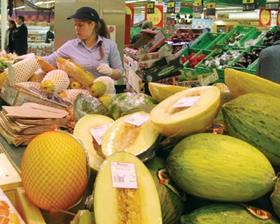
Spain’s fresh produce sector has reacted angrily to the approval by EU member states to remove marketing standards that govern the sale of 26 types of fruit and vegetables, claiming the move will open the market to low-quality foreign imports.
In a statement, Spanish producer-exporter association Fepex claimed the vote would “end transparency” in the EU market and could turn Europe into a depository for second-class quality products from around the globe.
Almería-based fresh produce association Coexphal also slammed the development as being “a very negative move for both producers and consumers”.
Alfonso Gálvez Caravaca, general secretary of Asaja Murcia, claimed the approval of the plans would “threaten the interests” of fresh produce companies in Murcia, arguing that it could lead to “unfair competition” between markets.
The industry reaction came after EU member states earlier this week voted in favour of new European Commission (EC) proposals that repeal existing rules governing the marketing standards on certain fruit and vegetables. However, Fepex claimed the move had been opposed by 16 member countries, including several major fruit and vegetable producing nations.
The new standards, which will come into force on 1 July 2009, apply to apricots, artichokes, asparagus, aubergines, avocados, beans, brussel sprouts, carrots, cauliflowers, cherries, courgettes, cucumbers, cultivated mushrooms, garlic, hazelnuts in shell, headed cabbage, leeks, melons, onions, peas, plums, ribbed celery, spinach, walnuts in shell, watermelons and chicory.
However, Coexphal accused the EC of “contradicting its own policies”, which it claimed favoured quality as a means of differentiating European fresh produce from imports from non-EU countries.






No comments yet